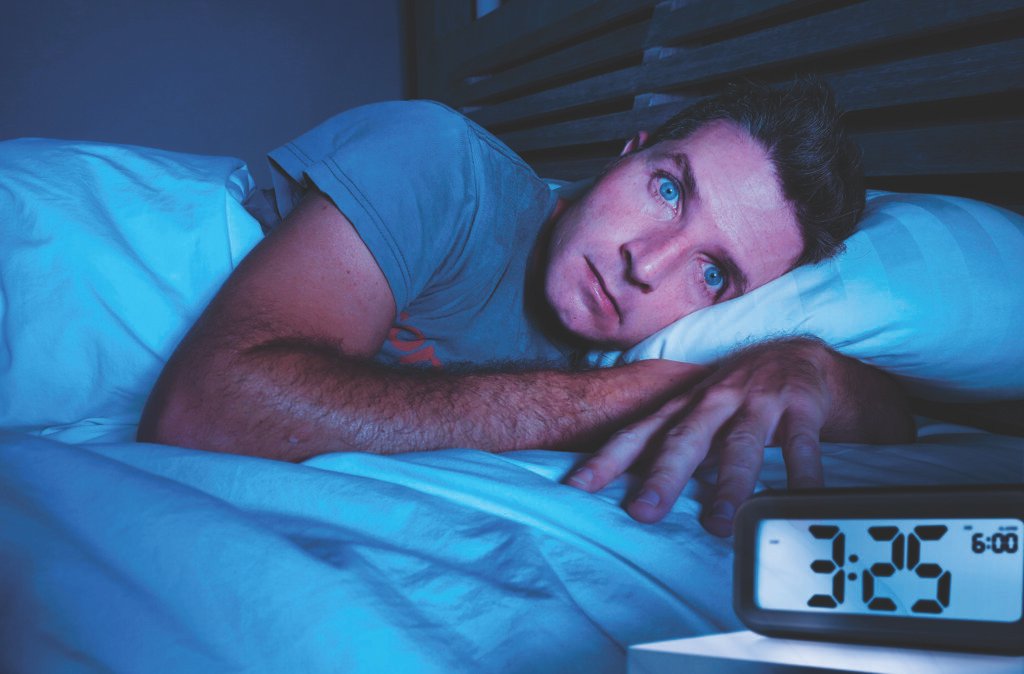Millions of people around the world suffer from insomnia, the inability to fall asleep or stay asleep. The foundation of good health is sleep, which affects everything from physical health to mental clarity. For many insomniacs, however, getting a good night’s sleep seems like an impossible goal. Not only does too little sleep leave you feeling tired, but it can also lead to mood swings, decreased productivity, weakened immunity, and an increased risk of chronic disease.
The first step to overcoming insomnia is understanding the cause. While occasional sleeplessness is normal, chronic insomnia is often caused by underlying issues that require attention. Stress, lifestyle choices, illness, and environmental factors are just a few examples of these causes. In this article, we’ll explore the top causes of insomnia and offer suggestions on how to address them to improve your sleep and overall health.
Stress and Anxiety as Leading Causes of Insomnia:
One of the most common causes of insomnia is stress and anxiety. Excessive thinking can make it difficult for the mind to relax, whether it’s about relationships, work, money, or health. Long-term stress puts the brain in a state of heightened alertness, disrupting the body’s normal sleep-wake cycle. Anxiety disorders such as post-traumatic stress disorder (PTSD), panic attacks, and generalized anxiety disorder can make insomnia worse by causing restlessness and repetitive thoughts.
A vicious cycle often arises when stress and anxiety disrupt sleep: sleep deprivation escalates stress levels, subsequently leading to additional sleep disturbances. By using techniques such as mindfulness meditation, cognitive behavioral therapy (CBT), and relaxation exercises, you can break this cycle and restore normal sleep patterns.
Lifestyle Choices and Unhealthy Sleep Patterns:
Poor sleep hygiene and unhealthy lifestyle choices are the leading causes of insomnia. Your ability to fall asleep can be hampered by irregular sleep cycles, too much screen time before bed, and caffeine or alcohol consumption in the evening. Likewise, inactivity can contribute to insomnia because it robs the body of its natural feelings of tiredness that promote sleep.
Because shift work and jet lag disrupt the body’s internal schedule, they are also common causes of disrupted sleep-wake cycles. By limiting stimulants, minimizing screen time before bed, and establishing a regular sleep routine, you can better align your habits with your body’s natural need for rest.
Chronic Illnesses and Health Conditions:
Insomnia can be caused directly or indirectly by specific medical conditions. For people who suffer from chronic pain due to conditions such as migraines, fibromyalgia, or arthritis, finding a comfortable sleeping position and getting uninterrupted sleep can be a challenge. Sleep apnea and asthma are two respiratory conditions that can cause you to wake up frequently during the night.
Sleep disorders have also been linked to neurological disorders, including Parkinson’s disease and Alzheimer’s disease. Further disrupting sleep is the possibility that gastrointestinal problems, such as acid reflux, may become worse at night. Proper management of certain medical conditions with the help of a healthcare provider can significantly improve sleep quality.
Mental Health Issues and How They Affect Sleep:
Insomnia and mental health issues, especially depression, are closely linked. People with depression may wake up early, have trouble falling asleep, or have restless sleep. Insomnia can also be a precursor to depression, creating a link between the two disorders. Episodes of insomnia during the manic or hypomanic phase are common in bipolar disorder and are characterized by mood swings.
Being hyperactive or having racing thoughts that make it difficult to fall asleep at night can be a symptom of other mental health conditions, including OCD and ADHD. Treating underlying mental health issues through counseling, medications, or lifestyle changes can significantly reduce insomnia.
Medications and Other Things That Keep You Up at Night:
Sleep disturbances are a side effect of certain medications. Some antidepressants, steroids used to treat inflammation, and stimulants used to treat ADHD can make it difficult to fall asleep or stay asleep. Over-the-counter medications such as decongestants or diet pills also contain stimulants that can disrupt sleep.
Substances such as smoking, recreational drugs, or excessive alcohol consumption can also make it harder for the body to get a good night’s sleep. Although alcohol has an initial calming effect, it can affect sleep quality by disrupting later sleep. Normal sleep patterns can be restored by addressing medication side effects or reducing medication use.
External and Environmental Factors that Affect Sleep:
Sleep quality is largely affected by the sleep environment. Uncomfortable temperatures, light pollution, and loud noises can all make it difficult to fall asleep or stay asleep. A cluttered or stressful bedroom can also make it harder for your brain to relax, which can lead to poor sleep quality.
Insomnia can be made worse by living in a noisy environment, having noisy neighbors, or by irregular sleeping conditions while traveling. Making small changes, such as investing in a comfortable mattress, using a white noise machine, or using blackout curtains, can significantly improve your sleep environment.
Age-Related Sleep Disorders and Hormonal Changes:
Insomnia is often caused by hormonal changes, especially in women. During pregnancy, menstruation, and menopause, sleep habits can be disrupted due to physical discomfort, hot flashes, or mood swings. Insomnia can also be caused by changes in male hormones, such as declining testosterone levels as we age.
Changes in the natural circadian rhythm as we age often result in lighter, shorter sleep. Older adults wake up more often during the night and have more difficulty falling asleep. Understanding these age-related hormonal variables can help people find specialized treatments, such as hormone therapy or cognitive behavioral techniques.
Effects of Nutrition and Diet on Sleep:
Your ability to sleep can be significantly affected by the foods and beverages you eat. Spicy foods can trigger acid reflux, and eating too much before bed can cause indigestion or discomfort. Consuming sugar and caffeine in the evening can stimulate the brain and delay the onset of sleep.
Instead, certain foods and minerals, including those rich in melatonin, tryptophan, or magnesium, can promote relaxation and improve sleep quality. You can have a more restful night by eating a balanced diet and avoiding stimulants in the hours before bed.
Conclusion:
Insomnia is a complex condition that can be caused by a variety of factors, including stress, lifestyle choices, illness, and environmental factors. While occasional sleeplessness is a natural part of life, it is imperative to be more aware of the potential causes of chronic insomnia. In addition to getting more sleep, treating the underlying causes of insomnia is crucial to promoting overall health and well-being.
People can make significant progress in improving their sleep by identifying and managing factors that disrupt rest, such as stress, bad habits, or illness. Insomnia can be overcome with medication, therapy, or lifestyle changes. Making sleep a priority is an investment in your health, satisfaction, and productivity. Remember, a good night’s sleep is essential, not optional.
FAQs:
1. How do I know if my insomnia is chronic?
Chronic insomnia is diagnosed if you have difficulty falling or staying asleep at least three times a week for three months or more, and you experience fatigue or mood swings during the day.
2. Can stress-induced insomnia be treated without medication?
Non-pharmacological approaches, including mindfulness meditation, relaxation techniques, and cognitive behavioral therapy (CBT), are often effective in treating stress-induced insomnia.
3. Is insomnia common as we age?
Circadian rhythm abnormalities associated with aging can lead to shorter and lighter sleep. However, it is important to assess the underlying causes of severe insomnia in older adults.
4. What foods can improve my sleep quality?
Foods rich in melatonin (bananas, cherries), tryptophan (eggs, turkey), and magnesium (nuts, seeds) can help you sleep better.
5. Should I see a doctor if I have occasional insomnia?
Occasional insomnia usually does not require a visit to a doctor. However, if the condition persists or significantly interferes with your daily activities, it is advisable to seek medical advice.

